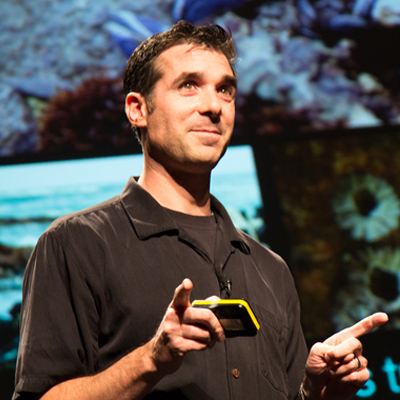Sea-life inspired adhesives improve patient outcomes and environmental sustainability
Visit a rocky beach during low tide and you will see mussels, oysters, barnacles, sea grasses, anemones, starfish, and limpets all attached to rocks. How do they do that when none of the existing adhesives at the hardware store can stick when wet? Dr. Jonathan Wilker, of Purdue University, is working to understand how marine biology makes materials such as these wet-setting glues. By understanding how sea creatures work, Dr. Wilker and his team are developing new synthetic adhesives with biomedical applications to replace sutures and screws. They are also designing coatings to prevent biological adhesion on ship hulls, to decrease drag and the 3.5% of all fossil fuel use consumed by international shipping. Dr. Wilker has been working for 15 years to understand and mimic biological adhesion. Thus far, he has gained some key insights to explain how shellfish stick. His best performing material is capable of bonding more strongly than commercial "Super Glue" which is especially exciting given the additional property of being able to bond when underwater.
Dr. Wilker hopes to apply his adhesive for replacing sutures, staples, and screws used during surgery. Patient outcomes will then improve, once we can avoid the damage created by such current surgical joinery methods. In addition to biomedical applications, Dr. Wilker's research aims to find more sustainable ways to prevent sea life from sticking to the bottom of boats. Currently, the ships are covered with red antifouling paints which prevent sea life from bonding. The problem here is that antifouling coatings release toxic copper and prevent biological adhesion by killing everything in the water around a ship. By better understanding the key aspects of adhesion, Dr. Wilker and his team hope to develop new methods for stopping the adhesion of sea creatures, allow ships to cruise more efficiently, and decrease the 3.5% of fossil fuel use devoted to shipping in the process! Dr. Wilker is committed to environmental justice as he hopes to create high performing materials that are environmentally sustainable, creating adhesives from renewable resources.
Current research includes:
-
Characterization: Dr. Wilker works with live sea creatures in order to better understand their biological and chemical properties, thereby discovering design cues for creating nature-inspired biological materials.
-
Development: Dr. Wilker develops new materials with properties that scientists have never had access to before. For example, by understanding how shellfish stick, Dr. Wilker has developed an adhesive that is stronger than "Super Glue" and can also bond underwater!
-
Applications Development: Ongoing work is exploring these new materials for applications that range from providing new surgical methods to creating environmentally sustainable options for shipping.
Bio
Dr. Wilker completed his B.S. in Chemistry at the University of Massachusetts in 1991 and immediately following completed his Ph.D. in Chemistry at MIT. Upon completing his degree, Dr. Wilker was a postdoctoral scholar at the California Institute of Technology within the Division of Chemistry and Chemical Engineering. As an Alfred P. Sloan Foundation Fellow and an Arnold and Mabel Beckman Foundation Young Investigator Award winner in addition to having received a National Science Foundation Faculty Early Career Development Award, Dr. Wilker has successfully integrated academic rigor and with important applications to protect our oceans while aiding in the advancement of health.
Dr. Wilker has always been drawn to the seas, a result of his parents frequently taking him to the New England coast. Later in life, as a scuba diver, he became fascinated with the underwater world, seeing things that most people never get to experience. While floating along, he wondered how sea life can make materials under such demanding conditions. After learning how little of this fundamental science was actually known, he found this topic too exciting to pass up. He has since been seeking to learn the materials development strategies of biology. In addition to his interest in scuba diving, Dr. Wilker enjoys cycling and photography.
Website: http://www.chem.purdue.edu/wilker/
In the News
Profile of Jon Wilker on National Public Radio, 2013
Nature Medicine
Live Science
The New York Times


